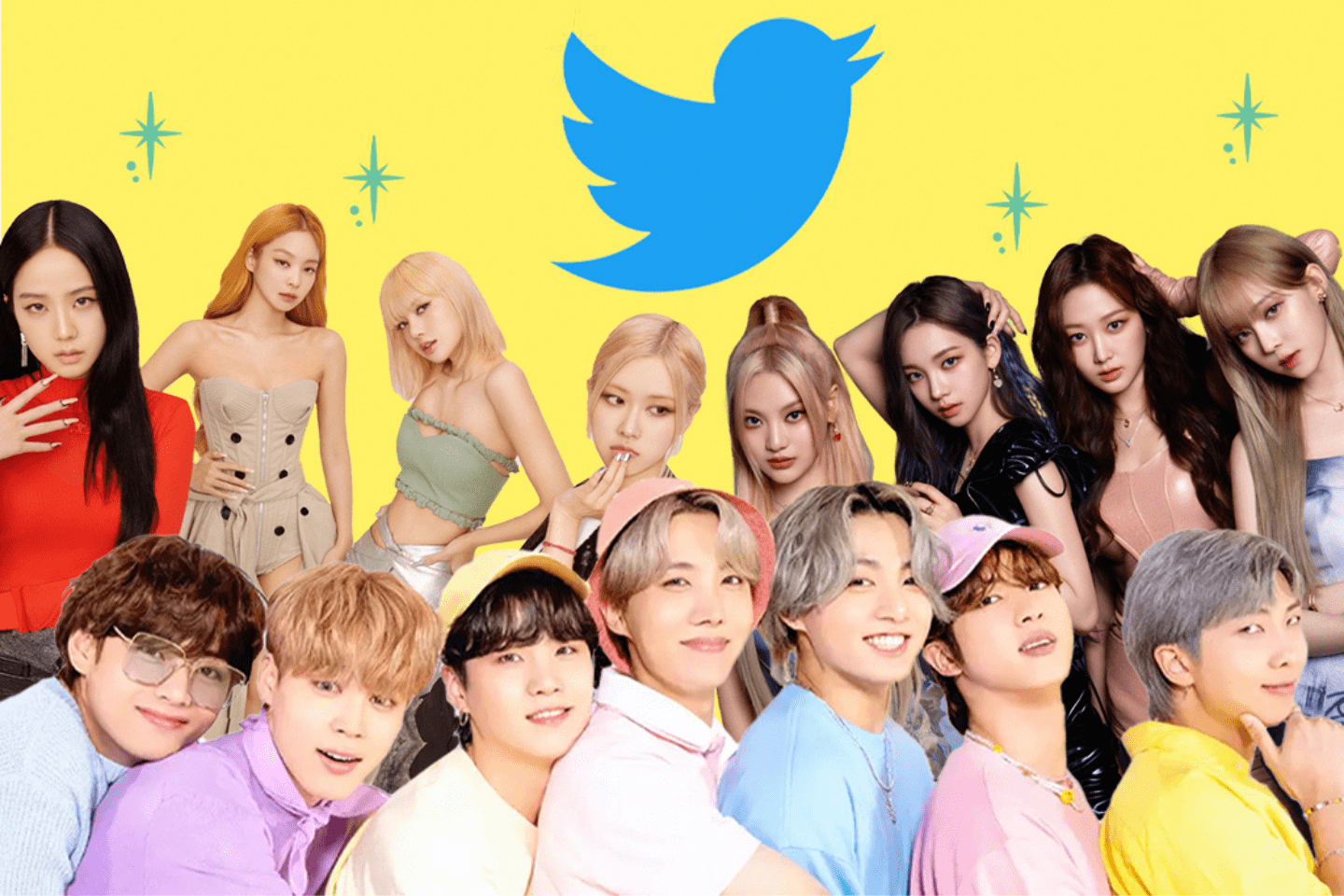Kpop junkee is a term that has gained significant traction in recent years, especially with the global rise of K-pop music and culture. If you're unfamiliar with the term, it refers to someone who has an intense passion for Korean pop music, often consuming it obsessively. This phenomenon is not just about music; it's a lifestyle, a community, and a cultural movement that has captured the hearts of millions worldwide.
K-pop, short for Korean pop music, is a genre that originated in South Korea and has since evolved into a global sensation. The term "kpop junkee" has emerged as a way to describe fans who are deeply immersed in this world, following not only the music but also the lifestyles, fashion, and culture surrounding their favorite artists. This article will delve into the world of kpop junkees, exploring their habits, motivations, and the cultural impact of K-pop on a global scale.
As we explore the topic, we will also examine the reasons behind the meteoric rise of K-pop and why it continues to attract new fans every day. Whether you're a kpop junkee yourself or simply curious about the phenomenon, this article will provide valuable insights into the world of K-pop fandom.
Read also:Marian Gold Age Exploring The Life Legacy And Cultural Impact
What is a Kpop Junkee?
Defining the Term
A kpop junkee is someone who is deeply passionate about K-pop music and culture. These fans often spend a significant amount of time and energy following their favorite artists, attending concerts, purchasing merchandise, and engaging with the broader K-pop community. The term "junkee" suggests an intense level of dedication and enthusiasm, often going beyond casual fandom.
Some common traits of kpop junkees include:
- Regularly listening to K-pop music.
- Following K-pop news and updates on social media.
- Attending concerts, fan meetings, and other events.
- Buying merchandise, albums, and other K-pop-related products.
- Engaging with fellow fans through online communities and forums.
Why Do People Become Kpop Junkees?
The reasons behind why people become kpop junkees are varied and complex. For many, the appeal lies in the music itself, which often combines catchy melodies with intricate choreography and visually stunning performances. Additionally, K-pop artists are known for their high production values, creating a multimedia experience that resonates with fans around the world.
Beyond the music, K-pop offers a sense of community and belonging. Fans often connect with others who share their interests, forming friendships and support networks that extend beyond geographical boundaries. The cultural exchange facilitated by K-pop also plays a significant role, as fans are exposed to aspects of Korean culture, language, and traditions.
The Rise of K-pop and Its Global Influence
A Brief History of K-pop
K-pop has its roots in the early 1990s, with the debut of groups like H.O.T. and Sechs Kies. These early pioneers laid the foundation for what would become a global phenomenon. Over the years, K-pop has evolved, incorporating elements from various musical genres and adopting cutting-edge technology to enhance its appeal.
According to a report by the Korea Creative Content Agency, the global market for K-pop reached $1.6 billion in 2020, with fans in over 100 countries. This growth can be attributed to several factors, including the rise of digital platforms, increased accessibility to K-pop content, and the strategic marketing efforts of entertainment companies.
Read also:Mafe Alonso The Rising Star In The World Of Entertainment
The Role of Social Media
Social media has played a pivotal role in the rise of K-pop and the creation of kpop junkees. Platforms like YouTube, Twitter, and TikTok have provided fans with unprecedented access to their favorite artists, allowing them to engage directly with idols and fellow fans. This interaction has fostered a sense of intimacy and connection, making the K-pop experience more personal and immersive.
For instance, BTS, one of the most popular K-pop groups, has amassed a massive following on social media, with over 40 million followers on Twitter alone. Their fan base, known as the BTS Army, is renowned for its active participation in online communities and its support for various charitable initiatives.
Understanding the K-pop Industry
The Structure of the K-pop Industry
The K-pop industry is a highly organized and competitive field, dominated by a few major entertainment companies such as SM Entertainment, YG Entertainment, and JYP Entertainment. These companies invest heavily in talent development, training aspiring artists in singing, dancing, and other performance skills before debuting them as professional idols.
According to a study by the Korea Music Content Association, the average training period for K-pop idols is around three to five years. During this time, trainees undergo rigorous schedules, focusing on improving their skills and preparing for their debut. This investment in talent development has contributed to the high quality of K-pop music and performances.
The Business of K-pop
K-pop is not just about music; it's a multi-billion-dollar industry that encompasses a wide range of products and services. From merchandise and concert tickets to digital content and collaborations with international brands, the K-pop industry generates revenue through various channels.
For example, BTS's collaboration with McDonald's in 2021 resulted in a global campaign that generated significant media attention and increased sales for the fast-food giant. Such partnerships highlight the commercial potential of K-pop and its ability to attract diverse audiences worldwide.
The Cultural Impact of K-pop
K-pop and Korean Culture
K-pop has become a powerful vehicle for promoting Korean culture globally. Fans are not only exposed to the music but also to aspects of Korean language, cuisine, fashion, and traditions. This cultural exchange has led to increased interest in Korea as a travel destination and a hub for cultural innovation.
According to the Korea Tourism Organization, the number of tourists visiting Korea for K-pop-related reasons has been steadily increasing, with many fans eager to experience the country firsthand. This trend has contributed to the growth of the Korean tourism industry and has strengthened Korea's position as a cultural leader in Asia.
The Influence on Global Music
The influence of K-pop extends beyond its borders, impacting the global music industry in significant ways. Artists from various genres have collaborated with K-pop idols, resulting in cross-cultural exchanges that enrich the musical landscape. These collaborations have also opened doors for K-pop artists to enter new markets and reach wider audiences.
For example, the collaboration between BTS and American artist Halsey on the song "Boy with Luv" showcased the potential for K-pop to transcend cultural barriers and appeal to diverse fan bases. Such collaborations demonstrate the growing influence of K-pop on the global stage.
The Challenges Facing K-pop Junkees
The Pressure of Fandom
While being a kpop junkee can be a rewarding experience, it also comes with its own set of challenges. Fans often face pressure to keep up with the latest trends, attend events, and participate in fan activities, which can be time-consuming and expensive. Additionally, the competitive nature of fandom can lead to conflicts and divisions within the community.
According to a survey conducted by the Korean Music Content Association, approximately 60% of K-pop fans reported feeling stressed or anxious due to their involvement in fandom activities. This highlights the need for fans to find a balance between their passion for K-pop and their personal well-being.
Addressing Misconceptions
Misconceptions about kpop junkees and K-pop fandom persist, often perpetuated by media portrayals and stereotypes. Some people view K-pop fans as overly obsessive or naive, failing to recognize the depth and complexity of the fandom. It's important to address these misconceptions and promote a more nuanced understanding of the K-pop community.
By highlighting the positive aspects of fandom, such as its ability to foster connections and promote cultural exchange, we can challenge these stereotypes and create a more inclusive environment for all fans.
Conclusion
In conclusion, kpop junkees represent a vibrant and passionate community that has played a significant role in the global success of K-pop. From its humble beginnings in South Korea to its current status as a global phenomenon, K-pop has captured the hearts of millions worldwide, offering fans a unique blend of music, culture, and community.
We encourage readers to explore the world of K-pop further, whether by listening to new music, attending concerts, or engaging with fellow fans. By doing so, you can experience firsthand the magic of K-pop and the sense of belonging that comes with being part of this dynamic community.
Don't forget to share your thoughts and experiences in the comments below, and feel free to explore other articles on our site for more insights into the world of K-pop. Thank you for reading, and we hope you enjoyed this comprehensive guide to understanding the phenomenon of kpop junkees!
Table of Contents
- What is a Kpop Junkee?
- The Rise of K-pop and Its Global Influence
- Understanding the K-pop Industry
- The Cultural Impact of K-pop
- The Challenges Facing K-pop Junkees
- Conclusion


